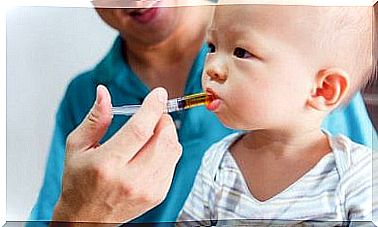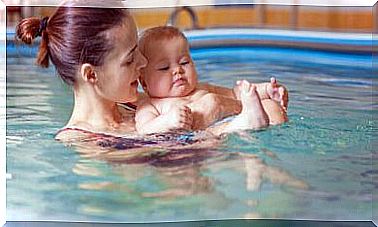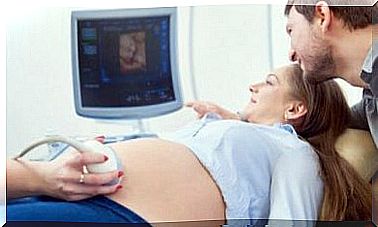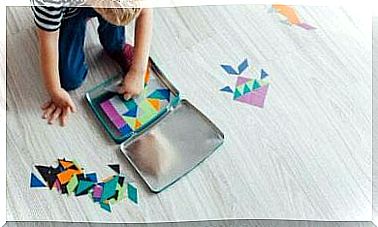Postpartum Period: It Takes A Year To Recover
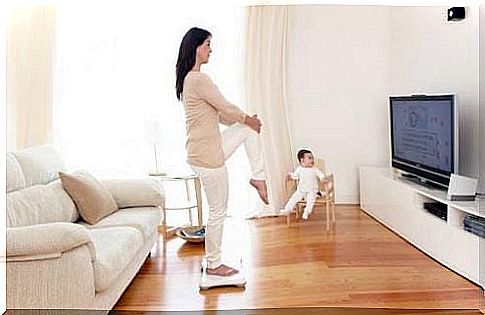
Today we talk about the postpartum period : do you know how long it takes to recover after giving birth? According to a study conducted at the University of Salford, England, one year. This research shows that, contrary to popular belief, it is not enough to go beyond the postnatal period.
This means that 45 days or 6 weeks is not at all long enough for the body and mind to recover after the woman gives birth. After giving birth, there are many feelings and worries that invade a mother. A new world presents itself before her eyes. The postpartum period required to fully recover is longer than is commonly thought.
In order to investigate the postpartum period, Dr. Julie Wray devoted herself to interviewing mothers who were in various postpartum stages. The conclusion? The standard period set for recovering from childbirth is pure fantasy. In fact, fully recovering can take up to twelve months.
Postpartum period: what it means to recover from childbirth
When we talk about the post-partum period, we are referring not only to the physical aspect, but also to the mental one. For several months the woman is under pressure to be a good mother, which means understanding and properly meeting the needs of her baby.
But that’s not all, to this we must necessarily add another conditioning that creates anguish, and a lot. The need to return – prematurely – to work. So, as if nothing had happened in the meantime. As if the physical, hormonal, emotional and life changes did not exist.
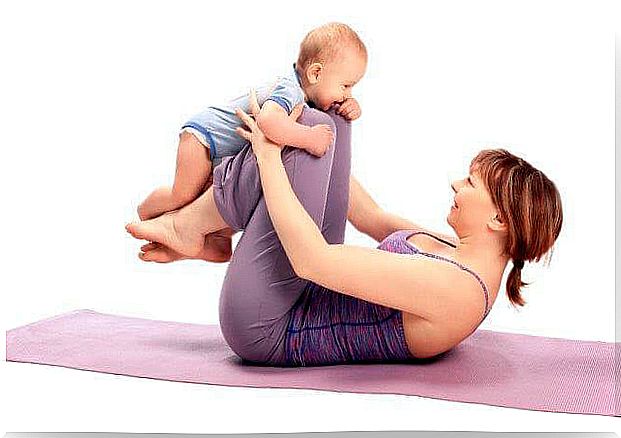
Science supports the position of mothers. The puerperium is not reduced to 40 days. The post-partum quarantine, in fact, is not to be understood only as the return to normalcy of the uterus. The post-partum period is something else, it goes far beyond this simplification of the event.
Between hormones and breastfeeding
The new mother needs time for her hormone system to normalize. In particular, even more so if it is a first-parent mother, she will need several months to adjust to motherhood. New rhythms, new habits and being attentive to a vulnerable baby all day is no small feat.
Breastfeeding should also be considered part of the postpartum period. In many cases it extends for months, in most cases a year and in others even two years. For this reason, the woman experiences a particular phase beyond the famous puerperium.
Hence this new scientific conception of the postpartum period. Not only do women experience bodily changes, they are also exposed to a flurry of contradictory emotions that are difficult to accept.
This postpartum recovery phase, however, varies from woman to woman. Not all bodies nor all minds act or react in the same way. The truth, however, is that a person can hardly adapt to so many changes in such a short amount of time.
Recovering from a physical point of view and balancing one’s feelings towards a new living being is certainly not easy. A new living being that arrives in the company of a new body and a new reality. The new mother will also have to deal with her new role as a woman and mother.
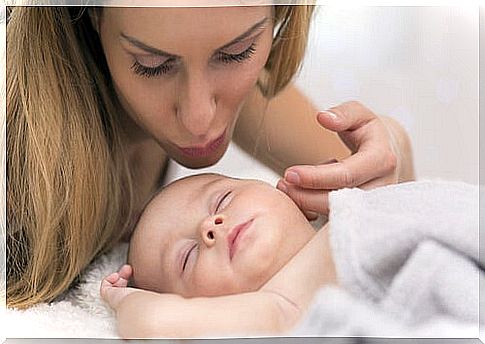
The plus of postpartum recovery: physical changes
There are several physical changes that follow the birth of your baby. Among them we can find the following:
- Normalization of the abdominal area,
- Pelvic floor rehabilitation,
- Swelling,
- Cellulite,
- Bleeding,
- Fatigue,
- Continual pain or discomfort.
As you can see, there are many factors that need to be managed after giving birth. For this reason, the discovery that took place at the University of Salford (England) does not seem so crazy. The post-partum process obviously consists of a complex process to be overcome in order to be considered of such a short duration.
For this reason, moms, don’t grieve if you see that time is passing and your body and mind are not yet in optimal shape. Respect your times and don’t rush. Enjoy your baby and try to recover in the best possible way. For your child, for your family, but above all for yourself.



